

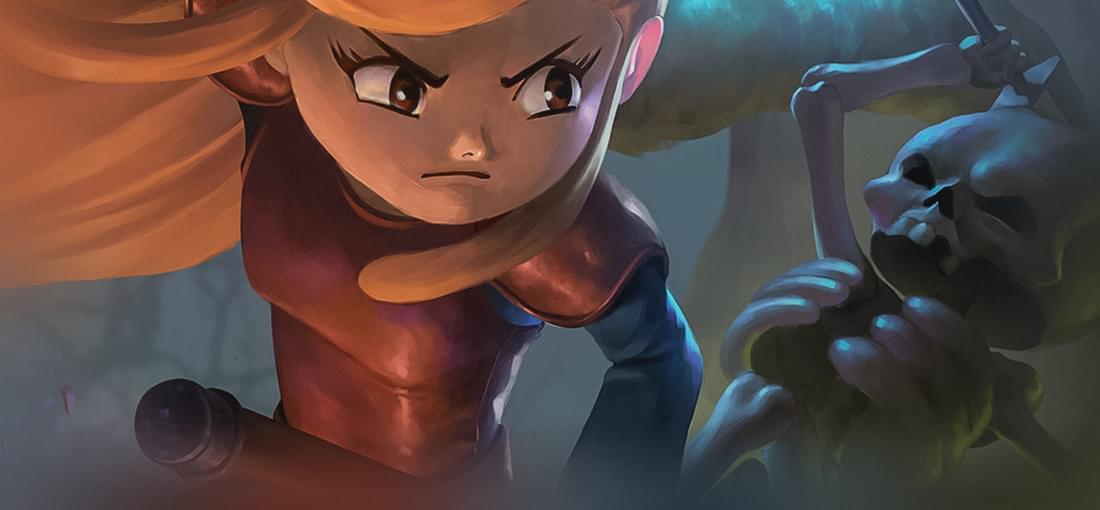
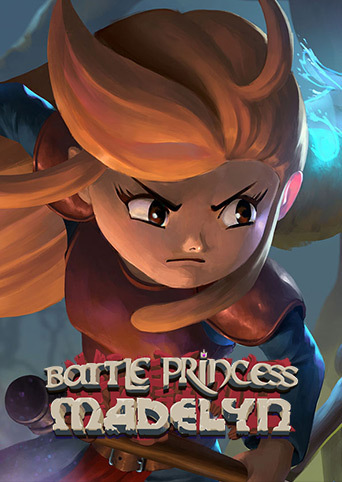
This game is an homage to the classic Ghost and Goblins. It features strikingly similarly game-play and music, with more story and rpg elements thrown in alla later metroidvanias. This game does not break any new ground, and will likely not wow most players, but it does delivery very solidly on its premise. The game was built as a gift to the lead programmer's young daughter. Many design and game-play choices seem to reflect the daughter's preferences or needs as the arch-typical player. The game features more emphasis on surprises and high numbers of enemies, and far less emphasis on tricky platforming challenges. It is also bright, colorful, and with a childish sense of humor, plot details, and values. I can definitely see this game being a good choice of plat-former for gamers even in the single digits. In particular, the game balances its medium-low difficulty with a generous death system. Once defeated, you can be immediately revived. This revival drains a meter that recharges by defeating enemies. This makes a mechanic where risk taking or sloppy play can be compensated for by short periods of low risk monster slaying. This is hastened by the fact that there are lots of enemies literally jumping out of the woodwork. If you die without enough charge for revival, you must then restart the stage. This restart is fast, seamless, and doesn't appear to cost much besides minutes of incremental progress. It is a very good plat-former for children to learn on as it lets you iterate and play without downtime. If you or a kid in your life likes the style, I would recommend buying it. However, there are many games who take the same basic premise in more creative directions, such as Rogue Legacy. I rate it 4 starts for doing an excellent job of what was promised. I am not suggesting most people would actually want that.
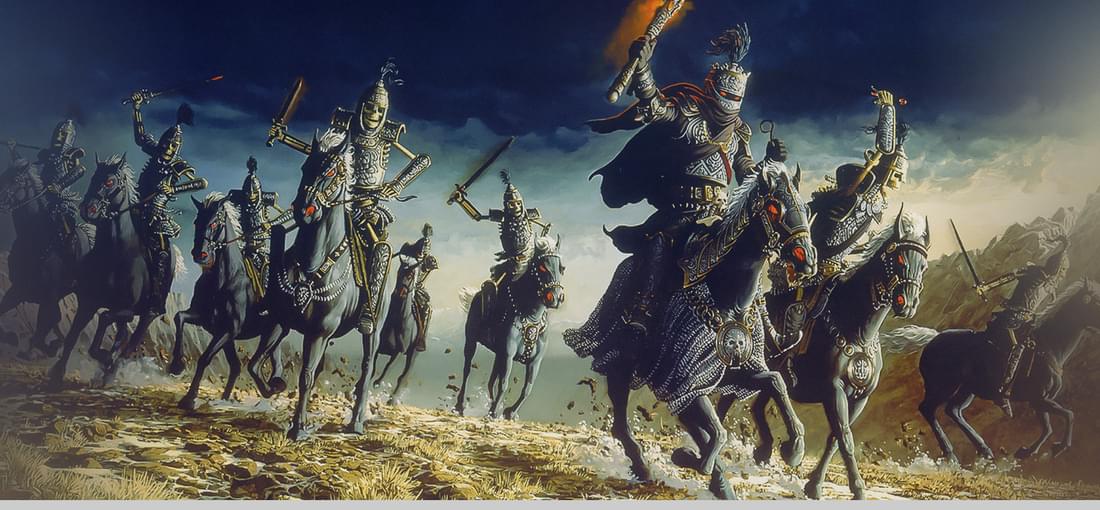
If you want to play the goldbox engine at its best, and really enjoy the combat mechanics of it, I highly recommend these. Unfortunately, all the polish and art do not support as dynamic or well told of a story as the forgotten realms games. The combat is better, in every way, and the interface is perfected. The dungeon crawl benefits greatly from the improvements as well, more types of events in more environments. There is also a lot of combat, for better or worse. If I remember Dark Queen of Krynn correctly, it can best be summarized by 30 hours staring at a large 30x30 grids filled with dragons and draconians and your party wading through the lot of em. The story is as cookie cutter as they come. It lacks the humor, grit, and melodrama of the Pool of Radiance series. Being a big fan of the Dragonlance books, I played these games when they released, and really enjoyed them. They do capture the essence of the Dragonlance setting, which is less gritty and more epic fantasy than Forgotten Realms. It replaces the somewhat personal story telling of a game like Curse of the Azure Bonds (in my opinion the best goldbox game) with EPIC BATTLES, in their estimation. It ultimately hurts the game if you aren't playing primarily for that reason. That said, the combat and pacing in the Dragonlance games is similar to the SRPGs of today, and I think it holds up well in that sense. All pretense of random and explorable plot is discarded for a highly linear dungeon crawl with towns in between. This has put a lot of people off in such a way that the aesthetics couldn't redeem. And to be fair, when these came out, Ultima 6 and 7 and realms of Arkania were contemporaries that introduced high levels of explore able, deeply interactive, and, player responsive content that the Krynn games couldn't compare to. It was an age when RPGs were trying to be living worlds. But the Dragonlance games just told a story with lots of battles in it.
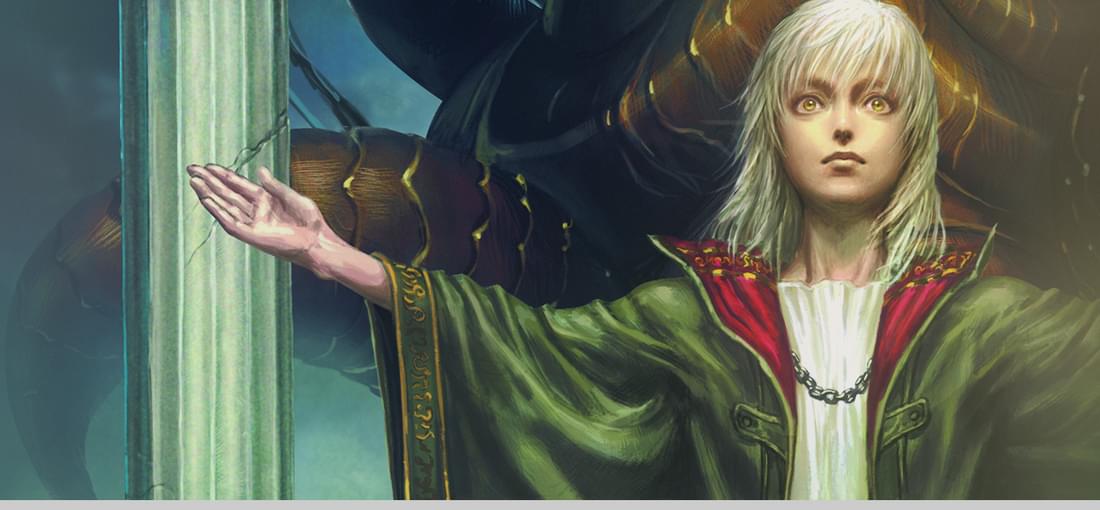
Elminage Gothic is an old fashioned dungeon crawler. Unfortunately, it is an old fashioned "B list" dungeon crawler. 8 hours in and I would say there are no glaring flaws (except maybe that the mechanics are strongly RNGed) but there is nothing outstanding about this game, except the monster art, which varies between passable, to excellent. The music is nice, I wish there was more, and higher quality. The mechanics are passable. The interface is awful. The dungeon is ugly (early 90's design) and uses a 3d engine, which is incongruous from the rest of the game. Bards Tale, Wizardry, and even many of the console crawlers, such as Arcana are all far superior to this game, offering a richer bit of story telling, more streamlined gameplay, and more enjoyable mechanics. While I love dungeon crawlers, there are far too many good ones out there to spend any time on this one. In many ways, it feels like a sophomoric and all together under achieving effort.
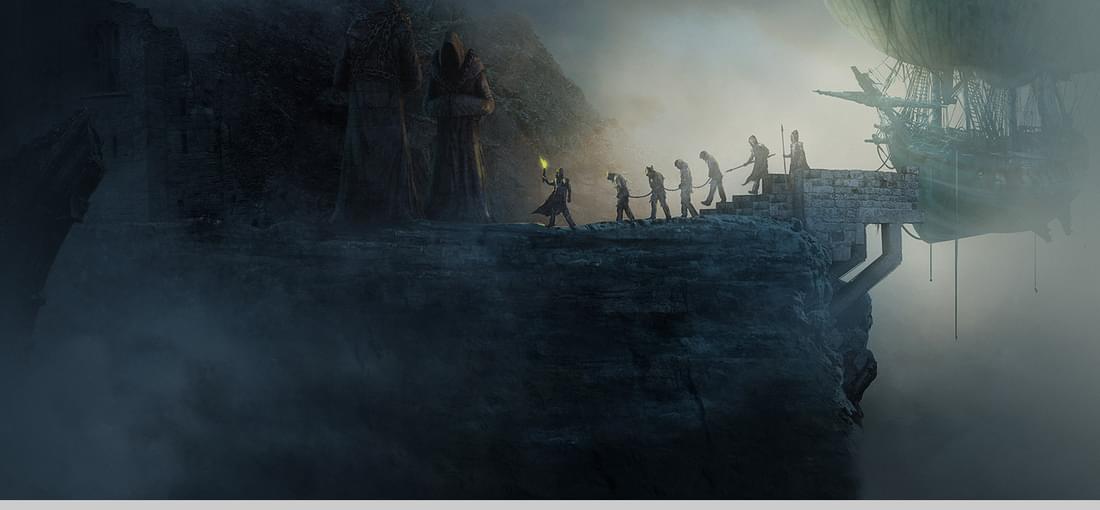
Grimrock is well done. Check any review posted to see that. It is certainly the kind of title that belongs on GOG.com. It captures the core of the fp dungeon crawler. The addition of modern lighting techniques and superbly handled sound effects make the experience engrossing. However, Grimrock is not an amazing top in class game. It is solid, and above average, but it has severe limits surpassed by most any long standing series in the genre. In the end, the mechanics are simple. The monsters (and fights), simple (although the 'boss' at the end was a fun fight) and the puzzles, for the most part, simple. Grimrock has almost zero replayability (even Torin's mode is so redundant that I dropped out early.) I cringe at the idea of the map editor, as, the engine demonstrates such limits in gameplace that I don't see a point. The creators built a great dungeon. But, frankly, one more floor would have been one too many. I enjoy dungeon crawlers a lot, they are my favorite genre, but, outside of a few high points and the boss, Grimrock, in spite of inspired maps, lacks depth in its repetitivity.
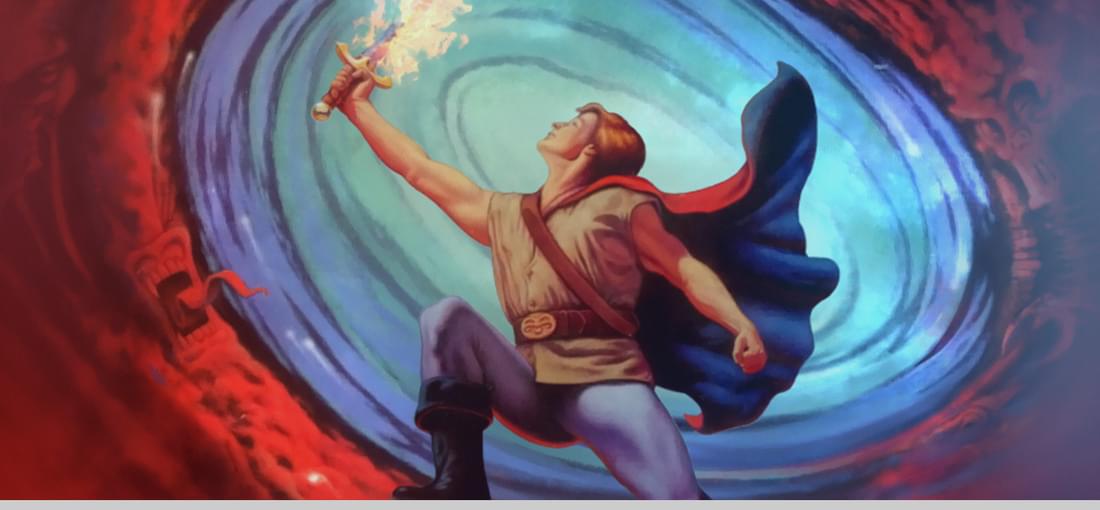
I have played and beaten QFG 1 (remake) and 3, both when they were released. They were the first PC games that left an impression that was akin to a great book. Witty writing that engaged the player directly (that is, the game and most people in it were writen as if aware of a "player" playing some guy in their world.) Stories that focused not on plots (which are actually not inherent to the fun of a game, for instance, what is the plot of pac man, and does it even matter?) but rather on making all the things you do fun. (no fetch quest, power leveling or any nonsense to force a slow metting ot of the script.) The QFG games, unlike other quest games, had lots of ways to explore and solve problems. This made htem less frustrating (overall) and, some argued, even too easy. I think it made them feel more like a creative challenge and less like a "guess what the programmer was thinking here" mess that most adventure and puzzle games fall into. of course like most sierra games, there are plenty of ways to get yourself killed, and normally more than one way to cheat death. The simple interface (a big improvement from other quest games,) is packed with creative deviations from it (mini games) and enjoyable story telling that taught me something of the height of what PC gaming could achieve as a user experience. Now have more complex thoughts (I was 12 or so when I played 1) but I learned a lot from those games, and I have had few experiences so well balanced, engaging, and enjoyable. I remember writing Roberta Williams a letter after beating 3, saying something like, "how amazing, you have inspired me to become a game designer." I forgot her reply (it was something like good on you, go for it,) and I never went into game design, but I still remember every game of hers I have played. in short, play these, and enjoy one of the best experiences in adventure gaming out there. Now, that said, AGDInteractive remade QFG2, so I will probably play their remake and not the original.. just saying, they do great work and it is free. Perhaps GOG should talk to them about including it in this package, or as a seperate (still free...) purchase/download. Thanks GOG!!!!